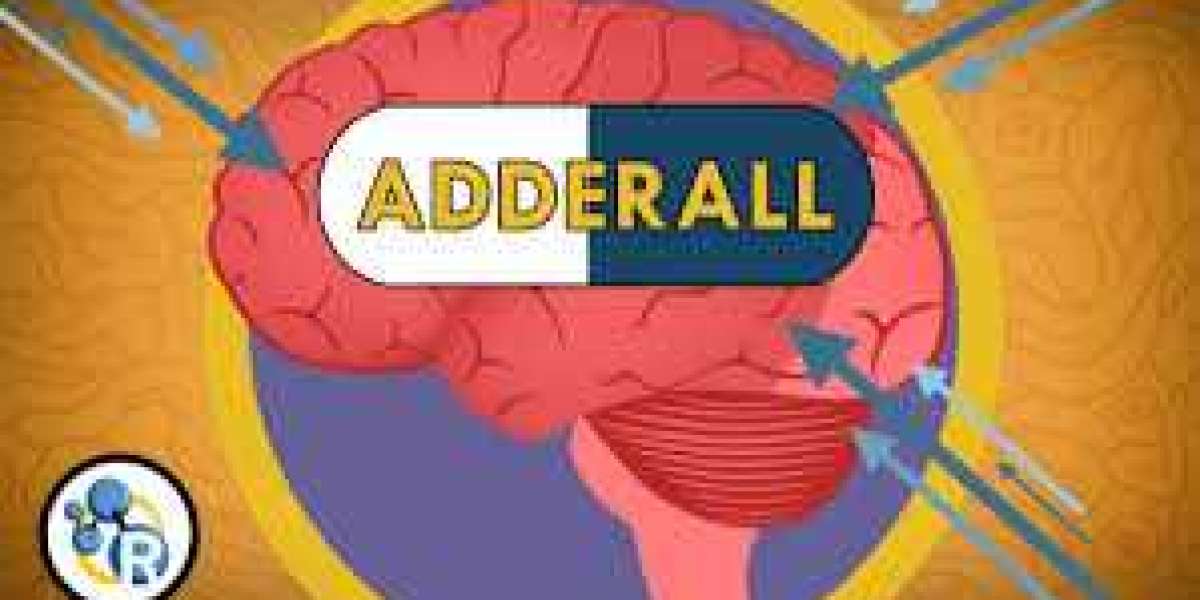Adderall Addiction: What You Should Know
Taking more Adderall than prescribed or altering its format for enhanced effects can contribute to addiction. Remember that it's normal to develop a tolerance to Adderall when taking it as prescribed, and this isn't a cause for concern.
Is Adderall addictive?
Adderall is addictive when taken at levels higher than what's prescribed by a doctor. Adderall is a prescription medication that consists of a combination of dextroamphetamine and amphetamine. It's approved by the U.S. Food and Drug Administration (FDA) to treat attention deficit hyperactivity disorder (ADHD) and a sleep disorder known as narcolepsy.
Adderall is considered a central nervous system stimulant. But at the correct dose, it helps people with ADHD focus and calm down.
If you take Adderall, you may find that the medication no longer controls your symptoms over time. You may need to take more of the drug to feel the effects.
Some people purposefully take large amounts of Adderall to feel a euphoric "high." Overusing or misusing Adderall, however, is very dangerous. It can lead to withdrawal symptoms, severe heart problems, and sudden death.
If you believe you have an addiction or dependency on Adderall, meet with your doctor. They can help you with your next steps and getting treatment.
What causes Adderall addiction?
Doctors typically prescribe Adderall at the lowest effective dose possible. It carries a low risk of dependency and addiction when used as directed.
A prescription for Adderall typically ranges from 5 to 60 milligrams (mg) daily. Adolescents will usually start at a dose of just 10 mg per day. Then, their doctor may slowly increase the amount until their ADHD or narcolepsy symptoms are managed.
Addiction to Adderall can occur when someone takes:
- more than their prescribed dose
- Adderall for more extended periods than prescribed
- Adderall more frequently than prescribed
Some people purposefully misuse Adderall to experience its stimulant effects. They may use it to help them stay up all night to study or boost their mental performance. Adderall is prescribed in pill form. Some people snort it or inject it to increase its effects.
Due to its high risk of misuse, Adderall is listed as a federally controlled Schedule II substance.
Who's at risk for an Adderall addiction?
Teens and young adults are most affected by Adderall addiction. But anyone taking Adderall is at risk of developing an addiction.
Most people who misuse Adderall seek stimulation, sustained wakefulness, better concentration, more energy, or weight loss. The following types of people are more likely to develop an addiction to Adderall:
- students
- athletes
- people with an eating disorder, like anorexia, or people trying to lose weight
- people with stressful jobs
- people with a history of drug use
Adderall can interact with several other medications. You're at a higher risk of developing an addiction to Adderall if you also take any of the following medications:
- decongestants
- antidepressants
- pain medications
- antacids
- antiseizure medications
- blood thinners
- blood pressure medications
- lithium
What are the symptoms of an Adderall addiction?
People who misuse Adderall may feel euphoria after they take it. Eventually, they need to take higher doses to feel good again. As the Adderall wears off, they can feel anxious and irritable. They may feel depressed.
People who misuse Adderall will likely begin to display "drug-seeking" behaviors. These can include:
- spending a significant amount of time and money to get the drug
- avoiding life's responsibilities
- becoming socially withdrawn or secretive
- "doctor shopping," or going to several different pharmacies to try to fill Adderall prescriptions
- manipulating, crushing, or snorting Adderall to increase or hasten its effects
- noticeably lowering their level of self-care or grooming
Once their Adderall dose wears off, they'll likely experience physical withdrawal symptoms or an "Adderall crash."
Adderall withdrawal symptoms can include:
- restlessness
- insomnia
- weight loss
- fast heart rate
- dizziness
- fatigue
- seizures
- panic attacks
- blurred vision
- high blood pressure
- paranoia
- dry mouth
- suicidal thoughts
- depression
Misusing Adderall can lead to increased tolerance. This means that more of the drug is needed to feel its effects. This can lead to a potentially lethal overdose.
Signs of an Adderall overdose may include:
- nausea
- vomiting
- tremors
- fever
- fainting
- rapid heart rate
- fast breathing
- chest pain
- seizures
- heart attack
How is an Adderall addiction diagnosed?
If you've noticed that using Adderall makes you need higher doses (tolerance) or feel terrible when you stop taking it (withdrawal), make an appointment with your doctor.
During your appointment, your doctor will first take your medical history. They'll ask you questions about your Adderall usage, including what dose you take and how often you take it. Your doctor will also want to know what other medications you're taking. This includes over-the-counter ones, vitamins, and supplements.
Your doctor will also ask questions about the symptoms you experience when the Adderall effects wear off. They may also perform a physical exam and measure your heart rate and blood pressure.
To make an official diagnosis, your doctor will likely refer to the latest diagnostic criteria from the Diagnostic and Statistical Manual of Mental Disorders.
If your doctor determines that you have an addiction to Adderall, they may refer you to a rehabilitation center or detox facility to help you recover.
How is an Adderall addiction treated?
There are no approved medications to help treat an Adderall addiction.
Instead, treatment is focused on supervising a person as they go through a detoxification process. Withdrawal from stimulants like Adderall can be highly uncomfortable and stressful for the body. Your doctor will refer you to an inpatient or outpatient rehabilitation center or detox facility.
During rehab, doctors will help you through the withdrawal process and make it easier to manage any withdrawal symptoms. It's not recommended that you quit Adderall cold turkey. Instead, your doctor will slowly lower the dosage under medical supervision. This is called tapering.
In general, the steps for treating an Adderall addiction include the following steps:
- Enroll in a supervised detox or rehab program.
- Get a medical evaluation and assessment.
- Taper Adderall under medical supervision.
- Manage withdrawal symptoms.
- Undergo psychotherapy or behavioral therapy.
- Develop an aftercare plan. This can include attending ongoing individual and group psychotherapy conducted by licensed therapists.
Doctors and therapists at the rehab center will help you understand how to live without the drug. They can help you find new, healthy coping skills to live your best life.
What's the outlook for someone with an Adderall addiction?
The longer you misuse Adderall, the stronger the addiction can become.
Withdrawal symptoms can make it extremely difficult to quit on your own, but leaving is possible with a bit of help. There are several options available for treating an Adderall addiction. These include therapy and rehabilitation centers.
Withdrawal symptoms can last anywhere from a few days to a few weeks. However, detox likely won't be enough to make a full recovery. A substance use disorder treatment program should follow detox. It can help you prevent relapse and encourage long-term recovery.
To avoid an Adderall addiction, follow your doctor's directions. Please don't take a larger dose, increase the frequency, or take it for a more extended period.
Be very careful to follow the instructions on the prescription label. Ask your doctor or pharmacist to explain any part you need help understanding.



